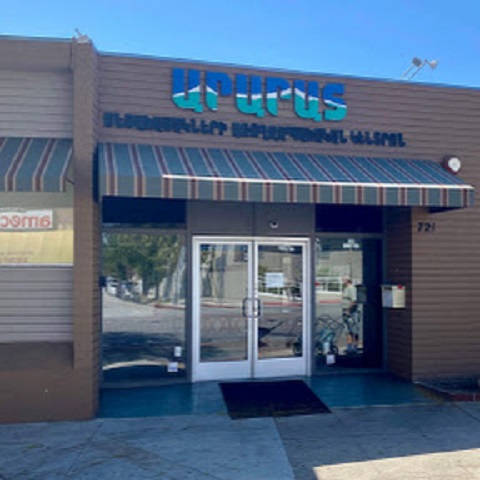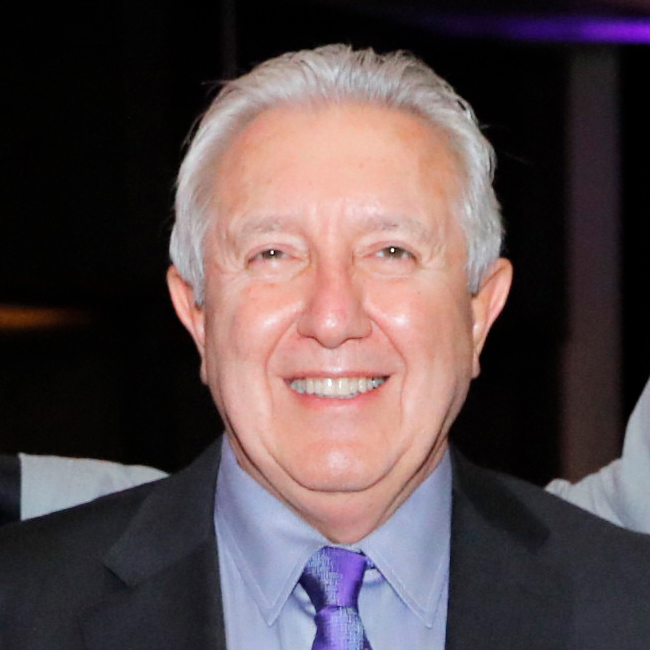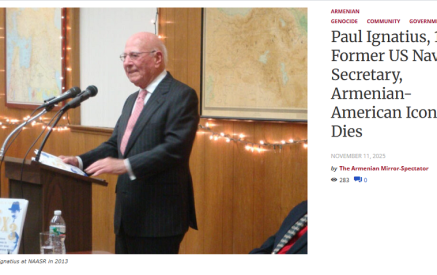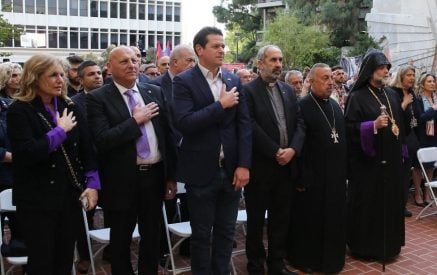The Armenian Mirror-Spectator. . GLENDALE — The situation of the elderly during the COVID-19 pandemic has been particularly precarious due to their greater vulnerability to the disease. Those living in assisted living and nursing homes in particular have fallen prey to it in great numbers. There is also an intermediate group of elderly who were living in their homes but going during the day to special centers for assistance. This group, including many Armenians in Glendale and other areas in Los Angeles County, has also been gravely affected by the coronavirus crisis.
Berdj Karapetian, involved in the ownership and administration of seven adult day health care centers in the Los Angeles basin serving, he said, somewhere between 900 and 1,000 people daily, said that they were like daytime nursing homes. “Our function is to help people who have been identified to be frail adults, who have one or more chronic medical conditions that could lead to their activities of daily living deteriorating and diminishing so that it reaches a dangerous point and they are institutionalized into a nursing home or hospital.” More than half of the participants in his centers’ programs have cognitive impairment conditions which complicate dealing with medical issues like diabetes and hypertension, and care plans prepared with the participation of their physicians and caretakers or family members had to be tailored to their specific needs.
In other words, these health care centers allow such individuals to stay as long as possible in their communities, either living in their own home alone or with family members, by slowing down the decline in their health or maintaining it at a steady level. Oftentimes, even if there is a family member or caregiver to help them, constant care proves too difficult a burden and these centers provide a respite to the former. There are 260 such centers in California (https://www.aging.ca.gov/Providers_and_Partners/Community-Based_Adult_Services/CBAS_Providers/), including 152 in Los Angeles County.
These centers are different from adult daycare centers, which are basically free centers for socializing and were deemed nonessential by the government. They were shut down during the pandemic.
Read also
Karapetian said that on March 16, when the California governor announced that the senior population was at the greatest risk, his adult day health care centers voluntarily decided to temporarily suspend operations until it could be clear what was going on and start providing services remotely.
By the end of that week, most of the employees were laid off, with the exception of some who had to continue to provide critical services to participants in the centers’ programs. However, Karapetian said, the centers began retraining and adjustments so that by the middle of the following week they began rehiring staff to expand services remotely. He said, “It is like a doctor — you cannot abandon your patients.” Services like delivery of meals and medication, including injections (e.g. insulin), could not be totally suspended.
Nurses of these centers initially went with protective equipment and administered shots and other medication management at the homes of participants, but Karapetian said that by the end of March arrangements were made with family members and caregivers so that with training the latter could administer them and physical contact between individuals was minimized.
Some services were provided by telephone, one person at a time. During the first two weeks, the staff went over COVID-19 symptoms and did educational work in languages like Armenian for those who did not understand English well.
Meal delivery was arranged for those living alone at home and coordination of daily activities that now had to take place at their homes instead of the center.
By the end of the second week, Karapetian said, there were more issues of anxiety, loneliness and isolation that had to be dealt with. By April they started taking more creative measures to connect people, such as starting a YouTube channel (for example, see that of Karapetian’s Ararat Adult Day Health Care Center: https://www.youtube.com/channel/UCU76zP9gsY8jdIbGjl6nlLA). The center’s activity person would tape a short one- or two-minute exercise, activity or song and links were sent to those who could receive it on phones. Otherwise family members were asked to help them watch on smart televisions or tablets.
Karapetian reported at least one positive note: only one person out of all the participants in the seven centers’ programs reported infection with COVID-19, and this happened only a week ago, well after the centers all physically closed. The others are all still safe at their homes and not institutionalized or hospitalized, which could lead to greater risks of infection.
Unfortunately, some employees became infected after physical closure, often due to contact with their own family members at their homes or in second jobs, but they have all recovered, Karapetian said. Other staff have declined to work due to health conditions or other personal circumstances, but meanwhile demands for work are increasing as the centers provide more services. Last week, Karapetian said, they began delivering nonmedical necessities such as toilet paper or hygienic items to people without means of shopping.
New staff are being hired to fill the demand and by the end of the week of April 20 Karapetian said he hoped they would have 80-90 percent of their former numbers employed, even if not fulltime as before, Karapetian said that this is possible because the government and health plans have indicated that they will pay for such services at the same rate as they used to get. Center like his have to submit temporary alternate plans of services to these authorities for approval.
The vast majority, 98 percent according to Karapetian, of the individuals enrolled in his centers were paying through either Medi-Cal (the California equivalent of Medicaid) or a health maintenance organization, usually through Medicare.
During the process of adaptation to the new circumstances created by COVID-19, Karapetian said that the California Association for Adult Day Services (www.caads.org/) provided webinars and other assistance which was incredibly helpful for the centers he worked in. While each of the seven centers operated as independent businesses, his involvement in each helped also in some mutual sharing of information.
Armenians in the Centers
The majority of Karapetian’s centers are in Glendale, but he also has centers in Van Nuys and Lake View Terrace. Though the majority of the people they serve are Armenians, some 35-40 percent are not, he said, and each center has a different mixture of people. Consequently, each has its own way of addressing the cultural needs of the population it serves along with various health issues.
Some have mixtures of Armenian, Filipino and Hispanic populations and attempt to celebrate elements of each culture along with educating the people of other backgrounds to have greater acceptance of each other. Karapetian said that though the groups may mingle, most of the time people congregate with people from their own cultures. As most individuals are in their 70s or older, they are fairly set in their ways, so the staff must adapt to this, he explained.
Even the centers primarily serving Armenians are different from one another. For example, he said, one has more Armenians from Iran than Armenia, and even in the two centers which both have large numbers of Iranian Armenians, there is a difference in the way they approach things. Karapetian said, “All of a sudden, they have also developed a certain identity with the locality where they are living and they see themselves as people from that locality and they have their own way of doing things. Whether it is North Hollywood or Van Nuys, they look at themselves differently than those from Glendale.”
Those in Glendale, which has a denser and larger Armenian population, were accustomed to receiving services from the government and major utilities in the Armenian language, unlike those in places like Van Nuys with fewer Armenians. Therefore, Karapetian said, Glendale Armenians feel like they are not being respected if they don’t see a lot done in Armenian (or Farsi). They feel like they have an ownership stake in the town. He said, “They have a stake in caring for things and that manifests itself in how they act — they are a lot more demanding.”
He pointed out that this was not unique to Armenians. Even the Latino population is not all from the same country or region of origin. There are people from El Salvador, Guatemala and Mexico along with Hispanics who have grown up in the United States, and the centers have to adapt to their cultural differences.
Karapetian concluded that at present, “The important part is that services have continued to this frail elderly population in an alternative way. We have adapted through telephone contact and the delivery of meals and medications to try and help them cope with the conditions and minimize their risks. We feel that we are continuing to help these individuals stay well by staying at home and being safe.”
Main caption: Ararat Adult Day Health Care Center in Glendale























































